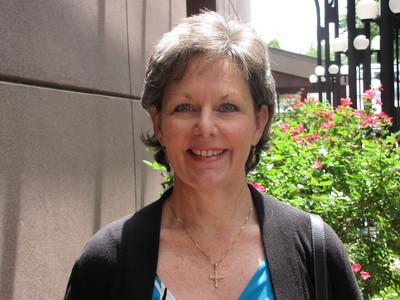Blog and News
Blog & News
The Voice on the Other End of the Phone
-
 Kathy Tomashitis
Kathy TomashitisOn this blog, we’ve heard from parents, hospital coordinators, individuals and others. Kathy Tomashitis lends a new voice to the conversation—one that is a key player in the newborn screening laws and regulations to which her state of South Carolina adheres.
Kathy Tomashitis began her career as a registered dietician, applying the biochemistry she had learned in undergrad to counseling patients, including many with metabolic disorders included in the NBS panel, on their nutrition habits. As South Carolina’s newborn screening program expanded, Tomashitis stepped into the role of NBS state coordinator for metabolic conditions.
In this role, she provides oversight and guidance to health professionals and families regarding the screening process and steers policy and procedures regarding NBS. Most recently, Tomashitis was involved in putting together a study group to review whether or not South Carolina should mandate screening for Critical Congenital Heart Defects (CCHD). Although the group decided not to pursue it legislatively for now, CCHD screening is slowly but steadily being implemented voluntarily across the state in small and large medical facilities alike.
“CCHD screening is more point-of-care and we knew that our team would have less involvement in its implementation and maintenance. We also know how mandates are viewed. South Carolina already has a fairly strong birth defects program, and, ideally, we’d like to see CCHD screening just be adopted as standard procedure in hospitals,” Tomashitis said.
South Carolina is also looking into screening for severe combined immunodeficiency (SCID). “Currently, the state does not offer any DNA-based NBS tests, so this would require a major retooling of our laboratories and hospitals. But we’re always on the look-out to keep our program as comprehensive as possible,” she said.
Part of keeping the program comprehensive includes incorporating the opinions of family groups as key factors in every decision Tomashitis and her team makes. “Minor changes can have big impacts, and we want to ensure that whatever we’re doing is best for the families involved,” she said.
Though Tomashitis has gotten more involved in the policy side of newborn screening, she has also stayed true to her dietician roots. “We talk to parents almost daily,” she said. “We’re always more than happy to discuss with them next steps, calm their nerves about repeated tests, and just help allay any anxiety we can.”
Tomashitis has a message for both families and health professionals:
“I have been blessed by the families with whom I have worked. Through how they’ve dealt with struggles, they have taught me a lot,” she said. “And I just want to let health professionals know what a rewarding job I have. It’s something that not everyone thinks about—working for a state health department. But I’d encourage others to consider it.”
“It’s unbelievably rewarding to be able to comfort families—by being able to pronounce the disease name, give them connections to advocacy and support groups and some hope that things will turn out right.”
Comment on This Post